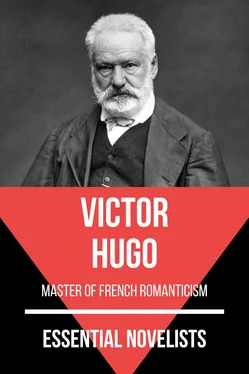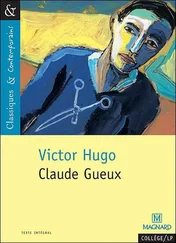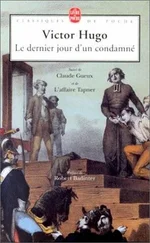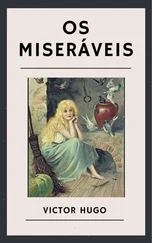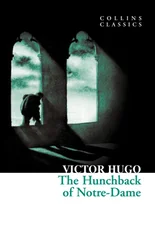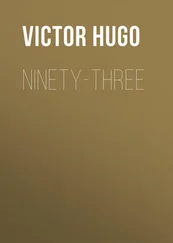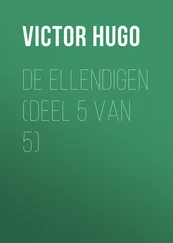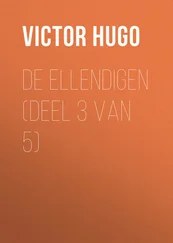She tore the letter open hastily, opened it, and read [she knew how to read]:—
“OUR BELOVED:—
“You must know that we have parents. Parents—you do not know much about such things. They are called fathers and mothers by the civil code, which is puerile and honest. Now, these parents groan, these old folks implore us, these good men and these good women call us prodigal sons; they desire our return, and offer to kill calves for us. Being virtuous, we obey them. At the hour when you read this, five fiery horses will be bearing us to our papas and mammas. We are pulling up our stakes, as Bossuet says. We are going; we are gone. We flee in the arms of Laffitte and on the wings of Caillard. The Toulouse diligence tears us from the abyss, and the abyss is you, O our little beauties! We return to society, to duty, to respectability, at full trot, at the rate of three leagues an hour. It is necessary for the good of the country that we should be, like the rest of the world, prefects, fathers of families, rural police, and councillors of state. Venerate us. We are sacrificing ourselves. Mourn for us in haste, and replace us with speed. If this letter lacerates you, do the same by it. Adieu.
“For the space of nearly two years we have made you happy. We bear you
no grudge for that. “Signed:
BLACHEVELLE.
FAMUEIL.
LISTOLIER.
FÉLIX THOLOMYÈS.
“Postscriptum. The dinner is paid for.”
The four young women looked at each other.
Favourite was the first to break the silence.
“Well!” she exclaimed, “it’s a very pretty farce, all the same.”
“It is very droll,” said Zéphine.
“That must have been Blachevelle’s idea,” resumed Favourite. “It makes me in love with him. No sooner is he gone than he is loved. This is an adventure, indeed.”
“No,” said Dahlia; “it was one of Tholomyès’ ideas. That is evident.
“In that case,” retorted Favourite, “death to Blachevelle, and long live Tholomyès!”
“Long live Tholomyès!” exclaimed Dahlia and Zéphine.
And they burst out laughing.
Fantine laughed with the rest.
An hour later, when she had returned to her room, she wept. It was her first love affair, as we have said; she had given herself to this Tholomyès as to a husband, and the poor girl had a child.
Book Fourth
To Confide Is Sometimes To Deliver Into A Person’s Power
Chapter I
One Mother Meets Another Mother
––––––––
THERE WAS, AT MONTFERMEIL, near Paris, during the first quarter of this century, a sort of cook-shop which no longer exists. This cook-shop was kept by some people named Thénardier, husband and wife. It was situated in Boulanger Lane. Over the door there was a board nailed flat against the wall. Upon this board was painted something which resembled a man carrying another man on his back, the latter wearing the big gilt epaulettes of a general, with large silver stars; red spots represented blood; the rest of the picture consisted of smoke, and probably represented a battle. Below ran this inscription: AT THE SIGN OF SERGEANT OF WATERLOO (Au Sargent de Waterloo).
Nothing is more common than a cart or a truck at the door of a hostelry. Nevertheless, the vehicle, or, to speak more accurately, the fragment of a vehicle, which encumbered the street in front of the cook-shop of the Sergeant of Waterloo, one evening in the spring of 1818, would certainly have attracted, by its mass, the attention of any painter who had passed that way.
It was the fore-carriage of one of those trucks which are used in wooded tracts of country, and which serve to transport thick planks and the trunks of trees. This fore-carriage was composed of a massive iron axle-tree with a pivot, into which was fitted a heavy shaft, and which was supported by two huge wheels. The whole thing was compact, overwhelming, and misshapen. It seemed like the gun-carriage of an enormous cannon. The ruts of the road had bestowed on the wheels, the fellies, the hub, the axle, and the shaft, a layer of mud, a hideous yellowish daubing hue, tolerably like that with which people are fond of ornamenting cathedrals. The wood was disappearing under mud, and the iron beneath rust. Under the axle-tree hung, like drapery, a huge chain, worthy of some Goliath of a convict. This chain suggested, not the beams, which it was its office to transport, but the mastodons and mammoths which it might have served to harness; it had the air of the galleys, but of cyclopean and superhuman galleys, and it seemed to have been detached from some monster. Homer would have bound Polyphemus with it, and Shakespeare, Caliban.
Why was that fore-carriage of a truck in that place in the street? In the first place, to encumber the street; next, in order that it might finish the process of rusting. There is a throng of institutions in the old social order, which one comes across in this fashion as one walks about outdoors, and which have no other reasons for existence than the above.
The centre of the chain swung very near the ground in the middle, and in the loop, as in the rope of a swing, there were seated and grouped, on that particular evening, in exquisite interlacement, two little girls; one about two years and a half old, the other, eighteen months; the younger in the arms of the other. A handkerchief, cleverly knotted about them, prevented their falling out. A mother had caught sight of that frightful chain, and had said, “Come! there’s a plaything for my children.”
The two children, who were dressed prettily and with some elegance, were radiant with pleasure; one would have said that they were two roses amid old iron; their eyes were a triumph; their fresh cheeks were full of laughter. One had chestnut hair; the other, brown. Their innocent faces were two delighted surprises; a blossoming shrub which grew near wafted to the passers-by perfumes which seemed to emanate from them; the child of eighteen months displayed her pretty little bare stomach with the chaste indecency of childhood. Above and around these two delicate heads, all made of happiness and steeped in light, the gigantic fore-carriage, black with rust, almost terrible, all entangled in curves and wild angles, rose in a vault, like the entrance of a cavern. A few paces apart, crouching down upon the threshold of the hostelry, the mother, not a very prepossessing woman, by the way, though touching at that moment, was swinging the two children by means of a long cord, watching them carefully, for fear of accidents, with that animal and celestial expression which is peculiar to maternity. At every backward and forward swing the hideous links emitted a strident sound, which resembled a cry of rage; the little girls were in ecstasies; the setting sun mingled in this joy, and nothing could be more charming than this caprice of chance which had made of a chain of Titans the swing of cherubim.
As she rocked her little ones, the mother hummed in a discordant voice a romance then celebrated:—
“It must be, said a warrior.”
Her song, and the contemplation of her daughters, prevented her hearing and seeing what was going on in the street.
In the meantime, some one had approached her, as she was beginning the first couplet of the romance, and suddenly she heard a voice saying very near her ear:—
“You have two beautiful children there, Madame.”
“To the fair and tender Imogene—”
replied the mother, continuing her romance; then she turned her head.
A woman stood before her, a few paces distant. This woman also had a child, which she carried in her arms.
She was carrying, in addition, a large carpet-bag, which seemed very heavy.
This woman’s child was one of the most divine creatures that it is possible to behold. It was a girl, two or three years of age. She could have entered into competition with the two other little ones, so far as the coquetry of her dress was concerned; she wore a cap of fine linen, ribbons on her bodice, and Valenciennes lace on her cap. The folds of her skirt were raised so as to permit a view of her white, firm, and dimpled leg. She was admirably rosy and healthy. The little beauty inspired a desire to take a bite from the apples of her cheeks. Of her eyes nothing could be known, except that they must be very large, and that they had magnificent lashes. She was asleep.
Читать дальше
